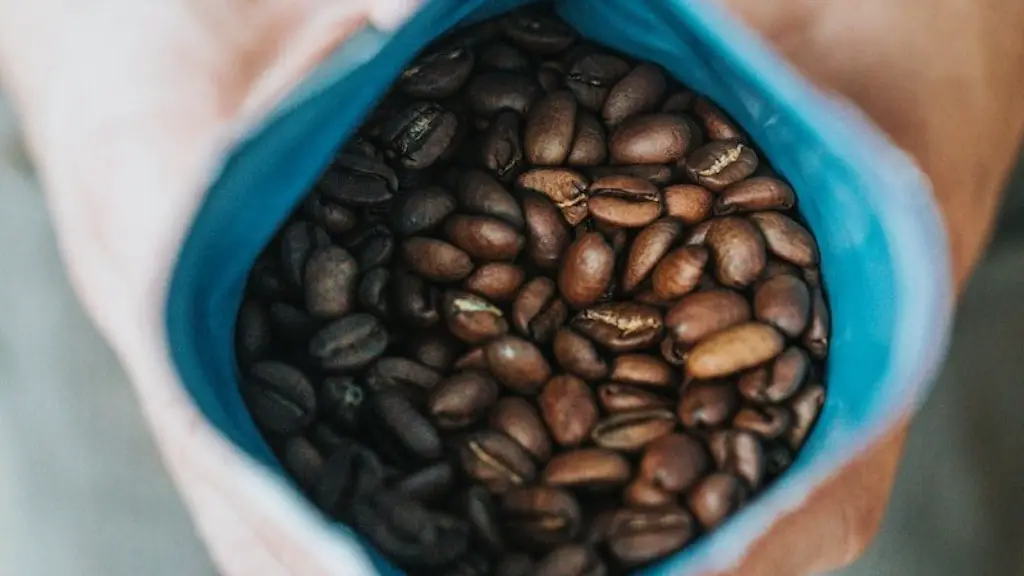Health Concerns
Coffee is the most popular drink in the world. It is consumed around the world in various forms, from espresso to cappuccino. With its caffeine content, coffee has become a popular beverage to give a person an energy boost. Though coffee has become a staple in our diet, is it unhealthy to drink too much coffee?
One of the major concern usually derived from drinking too much coffee is the potential for elevated stress levels due to caffeine, resulting in a decreased quality of sleep. Caffeine stimulates our central nervous system and can, in larger doses, lead to elevated stress levels. When caffeine is mixed with other stimulants, such as sugar, the effects can be more severe. Drinking too much coffee can lead to increased heart rate, which in turn can worsen anxiety and elevate stress levels, especially in those who are prone to anxiety.
Another concern relating to excess coffee consumption is the effects it has on our digestive system. Coffee can cause digestive problems, especially in people with a sensitive stomach, because it stimulates the activity of the digestive muscles. Too much coffee can lead to upset stomach, abdominal pains and diarrhea. Coffee can also stimulate acid production and exacerbate heartburn.
Effects on Blood Pressure
Excess coffee consumption has also been linked to higher blood pressure. Studies have shown that drinking more than 4 cups of coffee per day can raise an individual’s blood pressure. Caffeine can also cause an increase in blood pressure due to its effects on the body’s sympathetic nervous system. This system activates the fight-or-flight response, which can cause an increase in blood pressure. High blood pressure can lead to an increased risk of heart attack and stroke, as well as other serious medical conditions.
However, some experts suggest that this link between coffee drinking and increased blood pressure is due to erroneous assumptions. They suggest that coffee drinkers tend to lead unhealthier lifestyles in general, so the association between coffee drinking and blood pressure is more circumstantial than causal.
Coffee and Dehydration
Another potential health concern associated with over-drinking coffee is dehydration. Coffee is a diuretic, and when consumed in large amounts it can lead to dehydration. Dehydration can lead to an increased risk of fatigue, as well as other medical problems such as cramps, dizziness, and headaches. Coffee is also a stimulant and can act as a substitute for water, leading to a decreased consumption of water which can later cause dehydration.
But experts suggest the effects of coffee on hydration may be overstated. Most of the studies which suggest that coffee is dehydrating are done in isolation, with multiple variables. When studied in a more realistic setting, the effects of coffee on hydration are not that significant. In fact, studies suggest that coffee can be just as hydrating as water, as long as it is consumed in moderate quantities.
Nutrition Content of Coffee
Coffee does not naturally contain many essential nutrients. Though it can be fortified with vitamins and minerals, most cup of coffee do not contain much of these nutrients. Coffee does contain antioxidants, which are beneficial for the body, but the amount of antioxidants in one cup of coffee is small compared to a diet rich in fruits and vegetables.
The sugar and cream often added to coffee can be beneficial in providing calories, but over-consumption can lead to excess calorie intake, resulting in weight gain. The calories in coffee can also lead to a food-reward association, where people consume coffee for the taste rather than energy or hydration.
Coffee and Addiction
Excess coffee consumption can lead to dependence. Caffeine is a stimulator which acts on the body’s dopamine pathways, leading to a more pleasurable experience when consuming caffeine. This reward system can making drinking coffee more pleasurable, which can lead to an increase in coffee consumption. Excessive coffee consumption can lead to an increased tolerance, where an individual needs to drink more coffee to feel the same effects. Symptoms of coffee withdrawal, such as headaches, fatigue, and irritability, can also occur when coffee consumption is stopped abruptly.
However, experts suggest the possibility of coffee addiction is overstated. While coffee does activate the body’s dopamine pathways and lead to pleasure, this pleasure is usually short-lived and does not lead to long-term addiction. Rather, coffee drinking is usually done out of habit and convenience, rather than an addiction.
Alternatives to Coffee
For those who wish to reduce their coffee consumption, there are several alternatives. Tea is a popular alternative, which has a lower caffeine content than coffee and is available in almost as many varieties. Green tea is a particular favorite, due to its high antioxidant content. Other alternatives include energy drinks, as well as natural caffeine sources such as coffee fruit or guarana.
Finally, there are substitutes for coffee, such as chicory root or carob. These are caffeine-free substitutes that can give coffee drinkers the taste and smell of coffee without the caffeine. These substitutes can be used in recipes to add coffee-like flavor to dishes.
Coffee Brewing Methods
There are several different methods for brewing coffee. The most popular is the traditional percolation method, where hot water is forced through coffee grounds in a filter. The espresso method is more complex and requires more preparation time. In this method, hot water is forced through fine coffee grounds at high pressure, resulting in a stronger and more concentrated cup of coffee.
Coffee can also be made using cold-brewing, where coffee grounds and cold water are mixed together and allowed to steep for several hours before straining. This form of brewing produces a milder, less acidic cup of coffee. Coffee grounds can also be mixed with hot water and removed after a few minutes of steeping to produce a lighter cup of coffee.
The Consumption of Coffee
When it comes to the health effects of consuming too much coffee, only a few concerns have been established. Caffeine, the main active ingredient in coffee, has been associated with elevated stress levels and an increased risk of hypertension and digestive issues. However, these health risks are typically only established when people are drinking more than four cups of coffee per day.
For most people, occasional and moderate consumption of coffee is perfectly safe. Coffee is not only an energizer, but it can also be an enjoyable addition to someone’s day. To maximize the benefits and minimize the risks, try to limit your consumption of coffee to no more than 4 cups per day.
Nutritional Content of Coffee Alternatives
There are several alternatives to coffee that can be used to gain the energy associated with a cup of coffee, but without the added caffeine. Tea is a popular choice, containing some naturally occurring caffeine but lower than that of an average cup of coffee. Green tea is especially popular, due to its high antioxidant content. Other alternatives include energy drinks, coffee fruit, and guarana.
These alternatives can provide an alternative source of energy without an overload of caffeine. While energy drinks typically contain high levels of sugar, there are sugar-free alternatives available that can provide the same boost with fewer calories. Coffee fruit and guarana are natural sources of caffeine, with much lower levels than that of coffee.
Coffee and Mental Health
Excess coffee consumption has been linked to mental health issues, such as anxiety and depression. This is likely due to the effects of caffeine on the body, as well as the potential for caffeine addiction. When consumed in large quantities, caffeine can lead to increased levels of stress and anxiety, as well as insomnia and mood swings.
Depression is another potential side-effect of drinking too much coffee. Studies have suggested that drinking more than 4 cups of coffee per day can lead to an increased risk of depression. This risk is highest in younger adults, such as college students.
However, some experts suggest the correlation between coffee and depression is mainly circumstantial. They suggest that those who drink more coffee may be more prone to depression due to other lifestyle factors.
Effects of Coffee on Sleep
Coffee is a stimulant and can affect a person’s sleep. Caffeine has been shown to reduce a person’s needs for sleep, as well as disrupt their circadian rhythm. This can lead to poorer quality of sleep, as well as an increased need for sleep to make up for the lost sleep from drinking coffee late in the day.
Caffeine can also increase alertness, which can make it difficult for some people to fall asleep. This can lead to poorer sleep quality, as well as daytime fatigue and irritability. The risk of insomnia is also higher for those who drink coffee in excess, as the stimulating effects of caffeine can make it difficult to fall asleep.
Benefits of Coffee
Despite the concerns, there are also several health benefits associated with coffee drinking. Coffee contains several vitamins and minerals, as well as antioxidants which can help protect against certain diseases. Coffee can also increase alertness and energy, improve cognitive performance, and increase metabolism.
The health benefits of coffee are usually derived from its antioxidant content, which can help protect against oxidative damage from free radicals. Free radicals are unstable molecules that can damage cells, leading to disease. Coffee can provide an extra level of protection against free radicals, helping protect the body from certain types of cancer, as well as neurological and cardiovascular diseases.
Finally, coffee can improve physical performance and increase the body’s ability to burn fat. It can also help improve metabolism, leading to increased calorie burning throughout the day. This can help people lose weight more easily, as well as improve physical performance.



